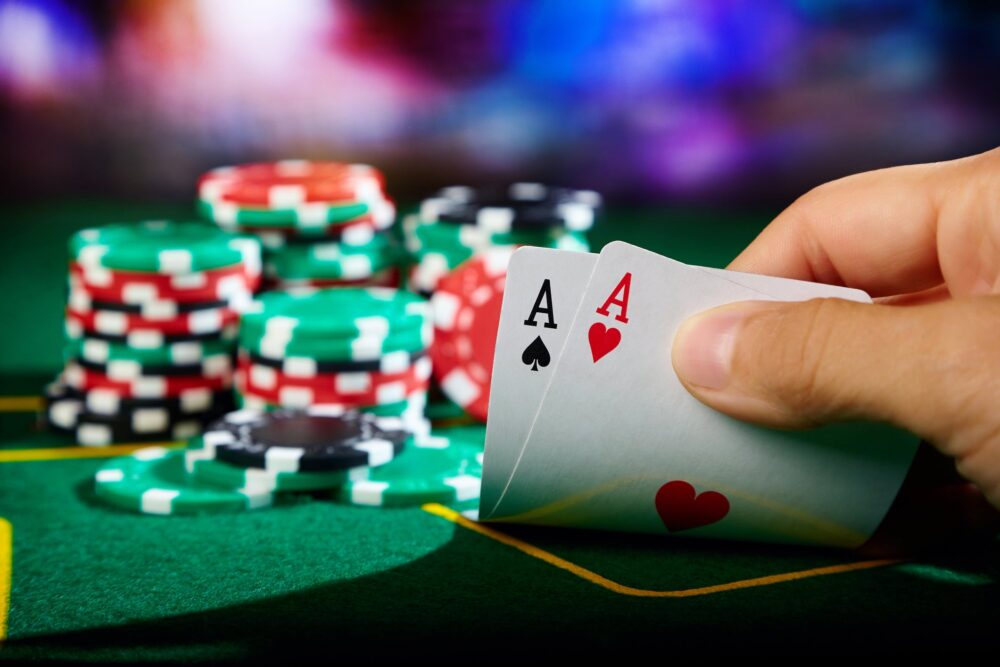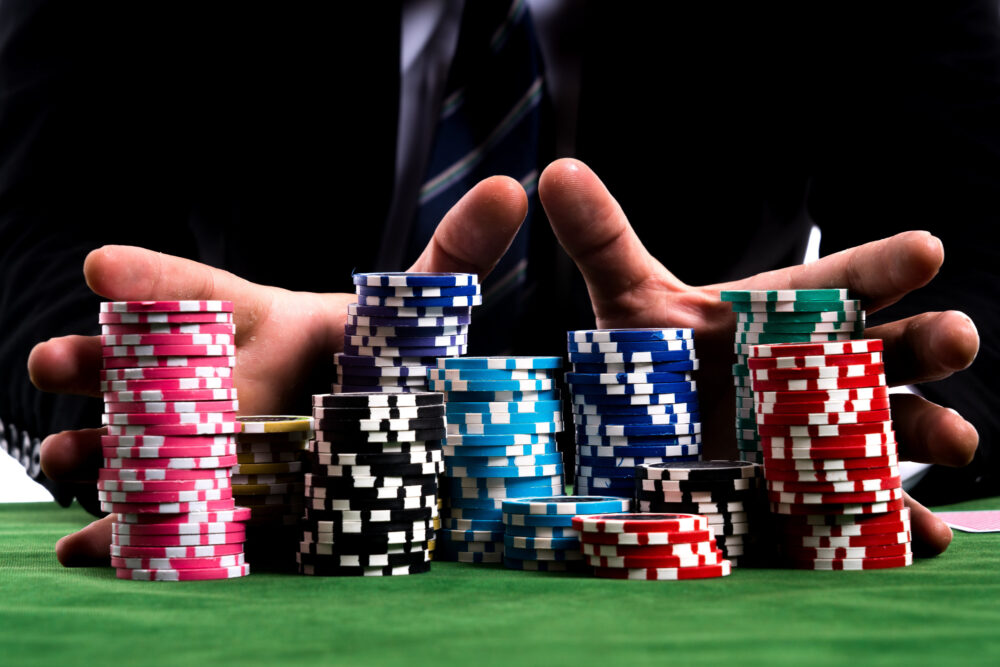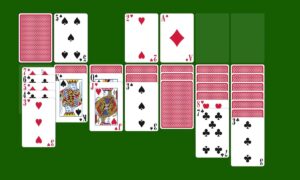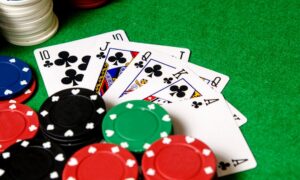Have you ever heard someone say that you have to be a math whiz in order to be a successful poker player? Whether it’s your friends, family, or everyone at the table, it seems like everyone is an expert when it comes to poker. But can you really be good at poker without being good at math? Let’s break down the skills needed to succeed in this thrilling card game.
How Math is Used in Poker

Source: youtube.com
In poker, math plays an important role. Mathematics is used to calculate probability, the chance of a particular event happening or a particular hand being dealt. It is also used to evaluate pot odds and implied odds, which are key components in making profitable decisions during gameplay.
Calculating probability involves understanding the number of possible combinations of certain cards in different decks and calculating expected values, also known as EV. An example of this would be calculating your chances of hitting certain hands like two pairs or trips preflop by dividing the types of cards that can make up that hand by the total number of cards in the deck. This information helps you determine whether or not to call or fold a hand in poker play. Additionally, if you are good in math and in quick calculations, you should also try the crash game.
Pot odds are useful for evaluating whether it’s profitable to call a bet based on how much money is already in the pot compared to how much it costs you to stay in the hand – sometimes referred to as “implied odds”. Knowing the pot odds gives you an indication as to whether folding or calling is better based on whatever expectations you have for improving your hand post-flop with your remaining two cards going into the next round. The goal here is usually to lose as little money as possible over time rather than make large plays with high variance results (receiving either small profit or huge losses).
Therefore, while math isn’t essential for playing poker, being able to use quick calculations is essential for making correct decisions regarding pot odds and implied odds throughout game play so that you can make long-term gains from playing poker – that’s why it’s often said that if you want to be successful at poker then you’d be wise brush up on mathematics!
How to Improve Math Skills for Poker

Source: gldproducts.com
While a good poker face and considerable knowledge acquired by playing regularly are essential, math skills can be just as important in improving your game.
Fortunately, math skills for poker can be improved upon with practice and patience. If you’re looking to up your skills in the mathematical aspect of the game, here are several helpful tips you can start using immediately:
- Start with the Basics: Understand Pot Odds The most basic mathematical concept of poker is known as “pot odds.” A player’s pot odds exist when they understand how big the pot size is relative to their bet size. For example, if there is ten dollars in the pot and you have to put five into it, your pot odds are 2:1. As the bet sizes change so do the pot odds; therefore, being able to quickly calculate them with accuracy is essential for making good decisions at the table.
- Learn How to Calculate Equity Another important concept related to equity; understanding whether or not your hand has an edge over other players’ hands (and vice versa) can help you make more informed decisions during betting rounds. To calculate equity you’ll need to assign percentages or ratios that represent each hand’s ability to win against one another given certain scenarios (e.g., a player has busted out or folded). Having a grasp on this concept will award you a clear advantage over those less math savvy players!
- Use Online Relevant Calculators When push comes to shove and you either don’t want (or can’t!) do the math by yourself take advantage of online resources available like PokerStove which allows users to input specific scenarios (hands, board cards, number of opponents etc.) before playback simulations revealing how often each player should expect certain results given those conditions. This will give you an edge even against experienced players who may not be as up-to-date on all things computing related!
Different Types of Poker and Their Math Requirements

Source: phys.org
It is a highly strategic game that requires players to make decisions based on various pieces of information. The mathematics involved in playing poker can vary greatly depending on the type of game you’re playing. In some games, such as Texas Hold’em, players must calculate pot odds to determine which moves are more likely to produce a positive result in the long run. Other types of poker may require calculating expected values or analyzing statistical data to calculate the odds of different outcomes.
Texas Hold’em is one of the most popular types of poker, and it has one major maths element – pot odds calculation. Pot odds calculation involves working out how much money is in the pot, what it will cost you to stay in (or call), and how likely it is that your hand will win. If the ratio between these numbers is high enough, then you might continue with your current hand despite not having a good chance at winning right away. Calculating pot odd requires basic multiplication and division skills at minimum.
Other types of poker may also be based on mathematical principles such as expected value calculations or analyzing statistical data like player betting patterns and frequencies. Many online poker sites even have computer opponents built into them which rely heavily on mathematics for their decision making process. While being good at maths can help a player succeed in all these scenarios, it’s important to note that there are many strong players who do not have an impressive grasp of mathematics too – strategy plays an equally important role!
Conclusion

Source: finance.yahoo.com
In conclusion, it can be said that mathematics certainly has a role to play in the game of poker. The ability to calculate outs and pot odds can be useful for making decisions at the table. However, there are numerous additional skills and traits that contribute to making someone a successful poker player and math is only one such example.
Successful poker players have an understanding of the cards themselves and of their opponents’ tendencies; they must also know when to bluff or bet, when to hold back, when to fold and, crucially, how much money they can afford to risk.
As such, mathematics alone does not make someone a good poker player – it is only one piece of the puzzle.


















